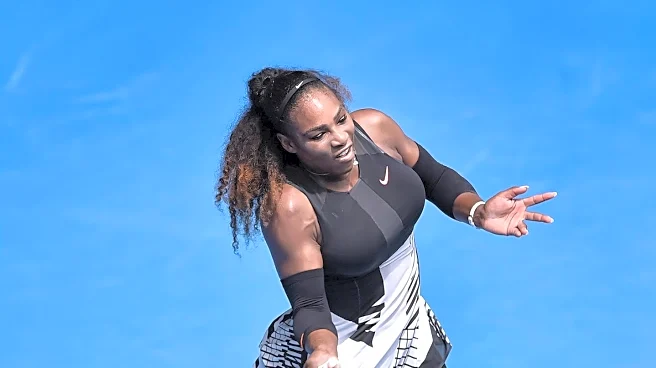What's Happening?
The advertising industry is facing criticism for its perceived anti-fat bias following Serena Williams' endorsement of the GLP-1 brand RO. The endorsement sparked debate on social media, with some commentators expressing disappointment over Williams' decision to promote weight loss drugs. Critics argue that the advertising industry contributes to a culture that stigmatizes body weight and promotes unrealistic beauty standards. The op-ed highlights the hypocrisy within the industry, which often advocates for body positivity while simultaneously perpetuating thin-centric ideals.
Why It's Important?
The controversy surrounding Serena Williams' endorsement underscores ongoing societal debates about body image and the role of advertising in shaping cultural norms. The criticism of the advertising industry reflects broader concerns about the impact of media on public perceptions of health and beauty. This discussion is significant as it challenges industry professionals to reconsider their approach to representation and inclusivity in advertising. The debate also highlights the need for more diverse portrayals of body types in media and marketing.
Beyond the Headlines
The backlash against the advertising industry's portrayal of body weight raises ethical questions about the responsibility of media companies in promoting healthy and inclusive narratives. It also prompts a reevaluation of the industry's influence on consumer behavior and societal attitudes towards body image. As discussions about diversity and representation continue, the industry may face increased pressure to adopt more inclusive practices and challenge existing stereotypes.










